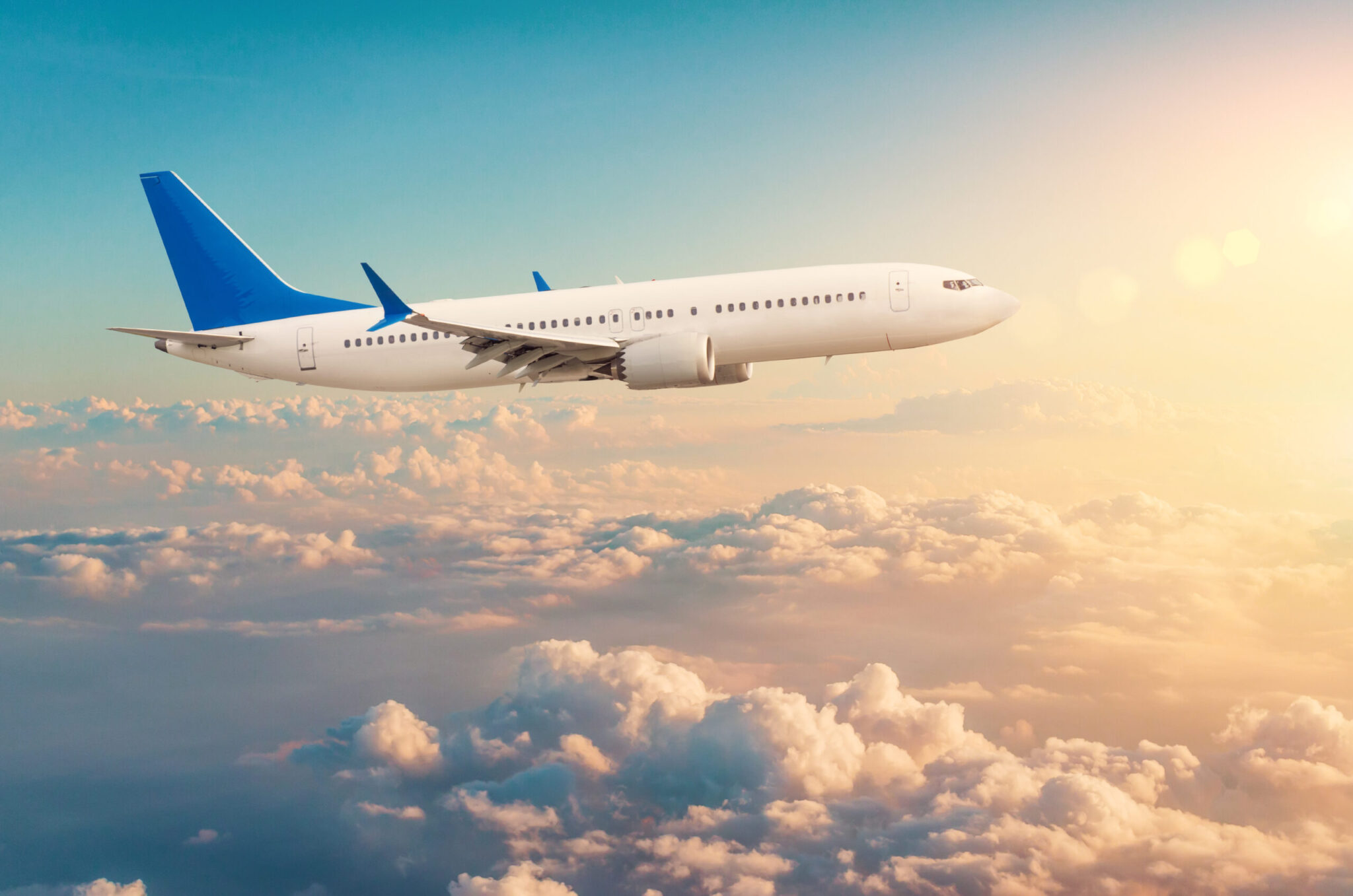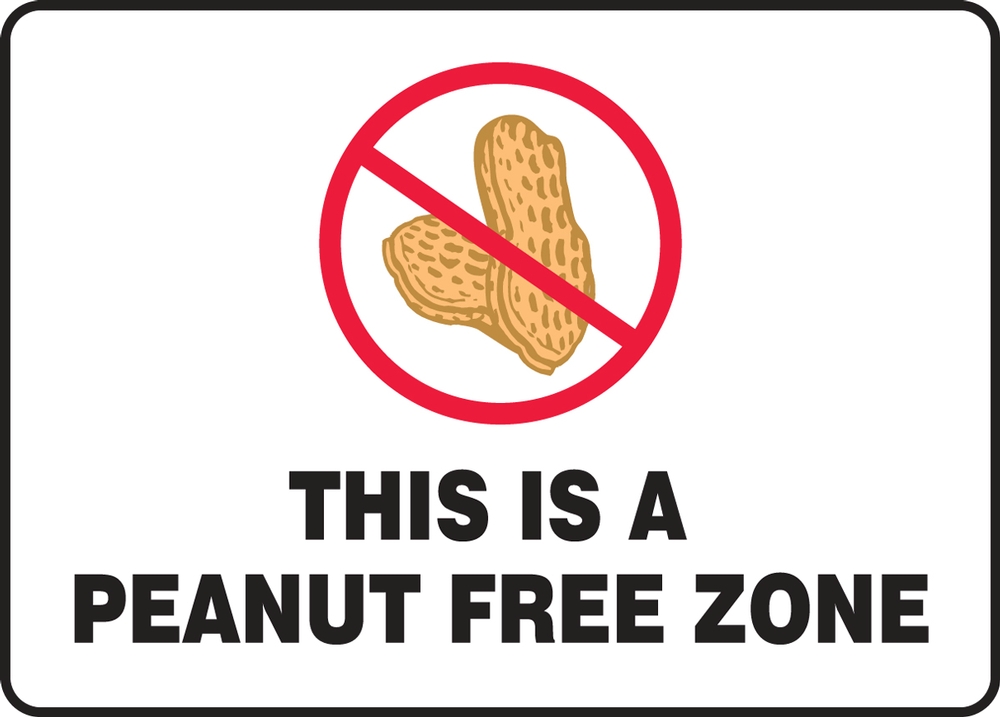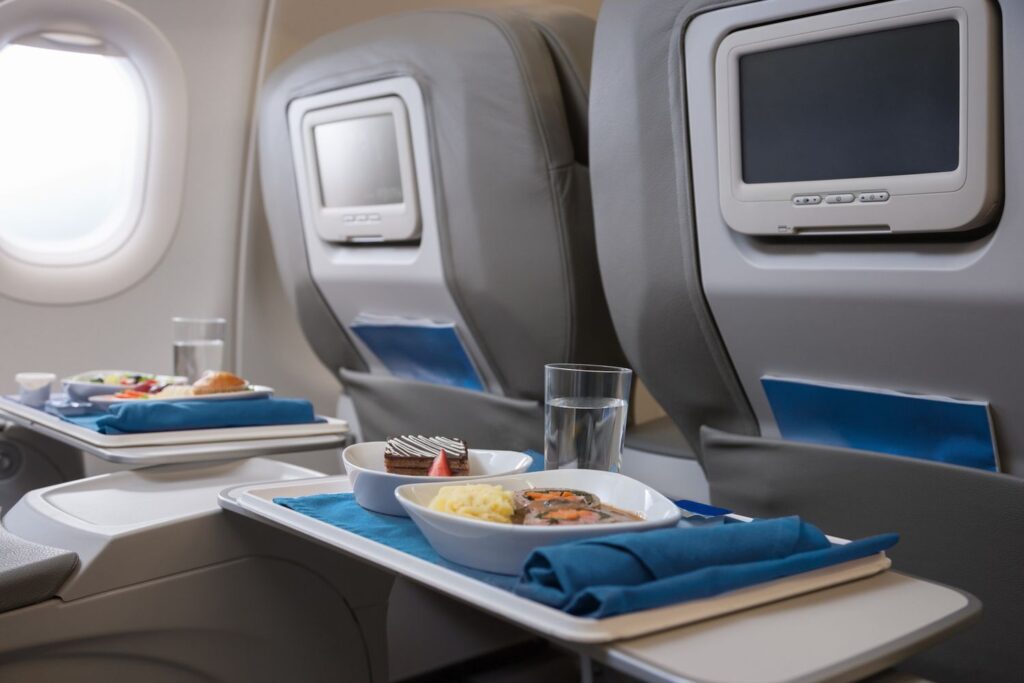
Now is the time we’re all getting ready for our summer holidays – if you are travelling by plane, have you checked about food safety for your journey?
For those who have food allergies, flying is never straightforward, and planning is really important to feel safe and supported on your travels.
Annoyingly there isn’t an overall requirement for what airlines should include in their policies on food, so they are all individual. Therefore, if someone in your travelling group has food allergies, you need to be aware of the policy for the airline you are flying with, and more importantly, you need to alert them in advance about your food allergies – or the food allergies of anyone in your party.


There is a caveat to that, because the airline you may be talking to, may not be the actual airline flying the plane. Some franchise to other airlines, and they may have completely different policy, and will be unaware of your dietary requirements.
If you want to be certain about what foods and snacks will be served during the flight, it is advisable to raise the question when you contact the airline before you book. Make your safety on a flight a condition of the booking – or you walk away. Don’t let this be a grey area, it is very important.
10 Tips for flying
- Check the food allergy policy of the airline before booking – if in doubt go elsewhere and ask for good seating and early boarding. Our CEO Julianne, who has serious food allergies herself, is campaigning for allergies to be treated as a hidden yet potentially life-threatening disability.
- Consider the time you fly. Most airlines are deep cleaned overnight, therefore a morning flight is more likely to lower the chances of cross contamination on surfaces. However, if you have a milk or egg allergy, flying in the evening could reduce the amount of potential food allergy triggers on the flight.
- Arrive at the airport to check in with plenty of time to re-confirm your requests for seating and early boarding. Ask to pre-board and wipe down your seat and surrounding area with your own wipes.
- Make sure your allergy medication is in your hand luggage, and therefore accessible at all times. Also have documentary proof of need from your doctor, ensure your MedicAlert safety jewellery is visible.
- Check that your allergy medication doesn’t expire during the time you are away and if you can take spare medication then do so.
- Can you bring your own food? Some airlines will allow this, but you need to be able to remove it from your carry-on luggage to put through customs separately. Fresh fruit and vegetables are not allowed.
- Inform the airline staff of your food allergy, at every opportunity you can: booking; boarding and before food is eaten.
- Carry a pack of wipes to clean down surfaces.
- Never use the airline’s pillows or blankets – they may not have been washed – just re-wrapped.
- Some airlines, on request, will make an announcement to the other travellers about a food allergy passenger. However, this is not a legal requirement, and passengers can, and do, refuse to comply.
The number of people in the world suffering from food allergies is still on the rise. Therefore, for those people to be able to travel safely, without worry, the airlines need to make some legislation about passengers agreeing not to eat certain foods if someone on the fight suffers from allergies.
Being asked not to eat something, such as nuts is unlikely to be harmful, whereas for a person suffering from a nut allergy, being exposed to them can cause them to go into anaphylactic shock, which could ultimately kill them.
 Login / Register
Login / Register  Contact / wholesale enquiries
Contact / wholesale enquiries




